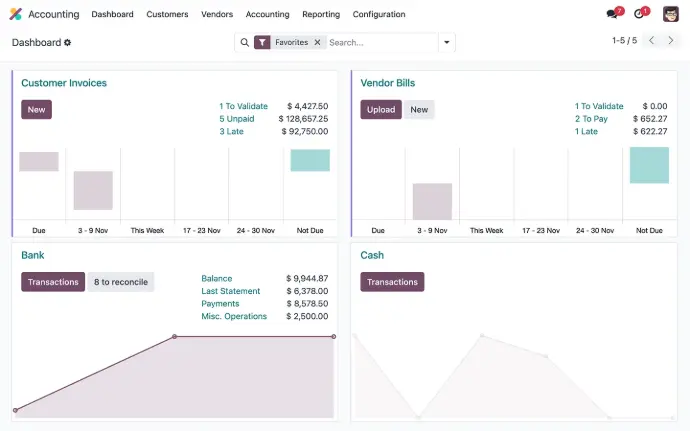What is ERP?
Enterprise Resource Planning (ERP) is a comprehensive business management software that integrates all core business processes into a single unified system. Think of it as the central nervous system of your organization, connecting different departments and functions while maintaining a shared database for seamless information flow.
Why ERP Matters for Southeast Asian SMEs?
In rapidly developing markets like Indonesia, Malaysia, Thailand, Vietnam, and the Philippines, SMEs face unique challenges:
- Managing growth in competitive markets
- Adapting to regional regulatory requirements
- Balancing cost constraints with technological needs
- Navigating diverse customer expectations
ERP addresses these challenges by providing integrated solutions tailored to regional business requirements.
Core Functions of ERP Systems
Modern ERP systems unify essential business functions:
- Finance and Accounting: Manage accounts payable/receivable, general ledger, and financial reporting
- Sales and Distribution: Track orders, pricing, and customer interactions
- Supply Chain Management: Optimize inventory, procurement, and logistics
- Manufacturing: Plan production, manage resources, and monitor quality
- Human Resources: Handle payroll, talent management, and workforce planning
- Customer Relationship Management: Manage customer data and interactions
The Business Impact of ERP for Southeast Asian SMEs
Operational Benefits
- Process Standardization: Implement consistent workflows across all business locations
- Real-Time Visibility: Access up-to-date information for better decision-making
- Reduced Operational Costs: Eliminate redundancies and streamline processes
- Improved Productivity: Automate routine tasks and reduce manual data entry
- Enhanced Customer Service: Provide faster, more accurate responses to customer inquiries
Strategic Advantages
- Data-Driven Decision Making: Gain actionable insights through integrated business intelligence
- Scalability: Easily adapt systems as your business grows
- Compliance Management: Stay updated with local tax regulations across ASEAN markets
- Competitive Positioning: Implement global best practices while maintaining local relevance
- Business Networking: Integrate more effectively with suppliers and customers
ERP Implementation Considerations for Southeast SMEs
Before investing in an ERP system, consider:
- Total Cost of Ownership: Beyond software costs, factor in implementation, training, and maintenance
- Local Support: Ensure your provider offers regional support in local languages
- Customization Options: Verify the system can adapt to local business practices
- Scalability: Choose a solution that can grow with your business
- Cloud vs. On-Premise: Evaluate which deployment model best fits your infrastructure and budget
Real Business Transformation Through ERP
ERP isn't just about technology—it's about transforming how your business operates. By integrating information and eliminating data silos, ERP enables:
- Transparency: Create a single source of truth across the organization
- Collaboration: Enable teams to work together seamlessly
- Efficiency: Reduce redundant processes and manual interventions
- Agility: Respond faster to market changes and customer needs
Conclusion
For Southeast Asian SMEs, implementing an ERP system represents a significant step toward digital transformation and competitive advantage. While the investment may seem substantial, the operational efficiencies, strategic insights, and growth capabilities that ERP provides make it an essential consideration for businesses ready to scale in this dynamic region.
By choosing the right ERP system that aligns with your specific business needs and regional requirements, your SME can achieve the operational excellence and strategic advantages previously available only to larger enterprises.
